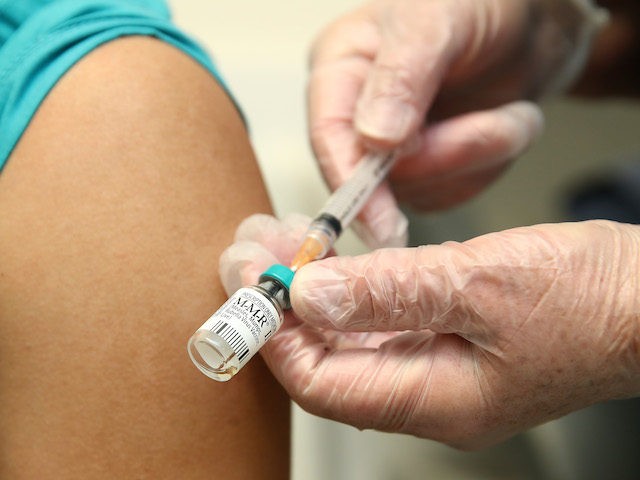The World Health Organization (W.H.O.) and the United Nations International Children’s Emergency Fund (UNICEF) announced in a joint press release that a “perfect storm” of conditions could lead to a measles outbreak.
The agencies noted that measles cases are up this year, with 17,338 global cases being reported in January and February, compared to 9,655 during the same months last year.
As of April, W.H.O. and UNICEF documented 21 measles outbreaks over the previous 12 months that were significant in size and disruptive, with most being in the East Mediterranean area and Africa, the release said. The countries with the most significant outbreaks were Afghanistan, Ethiopia, Nigeria, Somalia, and Yemen. Nigeria reported 12,341 cases, the most of the listed countries, followed by Somalia with 9,068. The three remaining countries documented between 3,000 and 4,000 cases over the 12-month period.
The agencies are citing a number of factors that have led to increased rates and a potential outbreak, including “routine immunization” disruptions and impediments related to the pandemic:
Pandemic-related disruptions, increasing inequalities in access to vaccines, and the diversion of resources from routine immunization are leaving too many children without protection against measles and other vaccine-preventable diseases.
The risk for large outbreaks has increased as communities relax social distancing practices and other preventive measures for COVID-19 implemented during the height of the pandemic. In addition, with millions of people being displaced due to conflicts and crises including in Ukraine, Ethiopia, Somalia and Afghanistan, disruptions in routine immunization and COVID-19 vaccination services, lack of clean water and sanitation, and overcrowding increase the risk of vaccine-preventable disease outbreaks.
The release states that in 2020, some 23 million children did not receive “basic childhood vaccines through routine health services,” which was 3.9 million more than in 2019 and the highest number since 2009.
In the release, UNICEF Executive Director Catherine Russel said:
Measles is more than a dangerous and potentially deadly disease. It is also an early indication that there are gaps in our global immunization coverage, gaps vulnerable children cannot afford. It is encouraging that people in many communities are beginning to feel protected enough from COVID-19 to return to more social activities. But doing so in places where children are not receiving routine vaccination creates the perfect storm for the spread of a disease like measles.
Fifty-seven vaccine-preventable disease campaigns that were set to take place in forty-three countries since the beginning of the coronavirus pandemic remained postponed on April 1, according to the agencies. Of the postponed campaigns, 19 were set to deal with the measles. The 2019 measles catch-up campaign in Ukraine was cut short due to the pandemic and remains impeded due to the war, the release said. Between 2017 and 2019, the country saw 115,000 measles cases, causing 41 deaths.
Domestic vaccination rates among kindergartners against the measles, mumps, and rubella (MMR) registered at 93.9 percent for the 2020-2021 school year, the Centers for Disease Control and Prevention (CDC) reports. In the 2019-2020 school year, MMR vaccination rates among kindergarteners stood at 95.2 percent, CDC data shows.

COMMENTS
Please let us know if you're having issues with commenting.